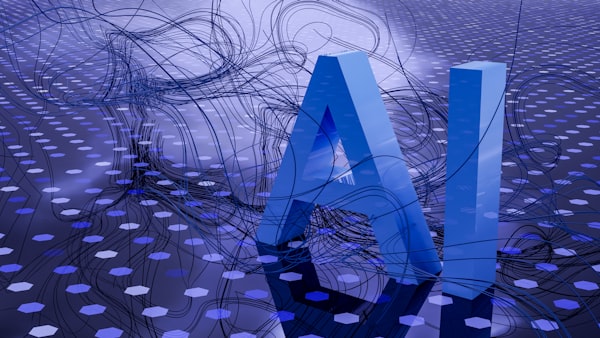Python and Artificial Intelligence: An Overview
Python, a dynamic and versatile programming language, has become synonymous with the development and implementation of artificial intelligence (AI) technologies. Its simplicity, robustness, and wide range of libraries and frameworks make it an ideal choice for developers and researchers working in the AI domain. In this blog post, we will delve into how Python empowers AI, focusing on its libraries, frameworks, and the role it plays in various AI applications. Whether you're a beginner eager to explore Python AI tutorials for beginners or an experienced developer looking for advanced insights, this overview aims to illuminate the pivotal role of Python in shaping the future of AI.
The Bedrock of AI Development: Python AI Libraries and Frameworks
Python's ecosystem is rich with libraries and frameworks designed to facilitate AI development, making tasks like machine learning with Python, deep learning frameworks in Python, and natural language processing (NLP) Python accessible and efficient.
Machine Learning with Python: Scikit-learn for Machine Learning
Scikit-learn is a cornerstone for machine learning with Python, offering tools for data mining and data analysis. It is built on NumPy, SciPy, and matplotlib, providing simple and efficient tools for data analysis and modeling. Whether you're working on classification, regression, or clustering projects, Scikit-learn's comprehensive set of algorithms makes machine learning tasks more approachable.
Deep Learning Frameworks in Python: TensorFlow and PyTorch Python
When it comes to deep learning frameworks in Python, TensorFlow and PyTorch stand out. TensorFlow, developed by Google, excels in numerical computing and large-scale machine learning. PyTorch, known for its flexibility and ease of use, is favored for dynamic computational graphs that facilitate complex architectural implementations. Both frameworks are instrumental in developing applications that involve Python for neural networks.
Natural Language Processing (NLP) with Python
NLP tasks, from sentiment analysis to language translation, are made more accessible with libraries like NLTK and spaCy. These tools provide comprehensive capabilities for natural language processing (NLP) Python, enabling developers to process human language data with ease.
Python for Data Science
Data is at the heart of AI, and Python's prowess in data handling is unmatched. Libraries such as Pandas and NumPy streamline data manipulation and analysis, foundational for Python for data science. These tools allow for effective data cleaning, transformation, and visualization, critical steps in any AI project.
Practical Applications: AI Project Examples in Python
Python's application in AI spans various fields, demonstrating its flexibility and power. From computer vision with Python to Python for predictive analytics, let's explore some practical AI applications.
Computer Vision with Python
Libraries like OpenCV have made computer vision with Python a field ripe with possibilities. Applications range from facial recognition systems to autonomous vehicle navigation, showcasing the impact of Python in processing and interpreting visual data.
Python for Predictive Analytics
Python for predictive analytics is another area where Python shines. Libraries such as SciPy and StatsModels are used to analyze historical data and predict future trends, valuable in industries like finance, healthcare, and marketing.
AI Chatbots in Python
Developing AI chatbots in Python has become increasingly popular, thanks to frameworks like ChatterBot. These chatbots are capable of learning from user inputs, making them more intelligent and efficient in handling queries over time.
Python for Reinforcement Learning
Python for reinforcement learning involves algorithms that learn optimal actions through trial and error. Libraries like Gym provide the tools necessary for developing and testing these algorithms, applicable in game development, robotics, and more.
Enhancing Capabilities: Python AI Development Tools
To support the development of AI applications, a variety of Python AI development tools are available. Integrated Development Environments (IDEs) like PyCharm and Jupyter Notebooks offer robust platforms for writing, testing, and deploying AI models.
AI Model Deployment with Python
Once an AI model is developed, it's crucial to deploy it effectively. AI model deployment with Python can be facilitated by tools like Flask and Django, enabling the integration of AI models into web applications.
Python Packages for AI
The Python Package Index (PyPI) hosts numerous Python packages for AI, covering a broad spectrum of AI tasks. These packages are continuously updated, ensuring developers have access to the latest tools and algorithms.
Ethical Considerations: Python and AI Ethics
As AI technologies advance, ethical considerations become increasingly important. Python and AI ethics involve ensuring AI technologies are developed and deployed in a manner that is fair, transparent, and respects privacy. Developers are encouraged to consider the ethical implications of their work, fostering responsible AI development.
Learning and Community: Python AI Tutorials for Beginners and Challenges
For those new to AI, numerous Python AI tutorials for beginners are available online, offering a step-by-step guide to understanding and implementing AI concepts. Additionally, Python AI competitions and challenges, such as those hosted on Kaggle, provide a platform for developers to test their skills and learn from the community.
Conclusion
Python's simplicity, extensive libraries, and community support make it a leading language in AI development. From AI algorithms implemented in Python to Python in robotics and AI, its applications are vast and varied. As we continue to explore the possibilities of AI, Python remains at the forefront, empowering developers to turn their innovative ideas into reality. Whether you're just starting with Python AI tutorials for beginners or diving into complex AI project examples in Python, Python offers the tools and flexibility needed to advance in the AI domain.



